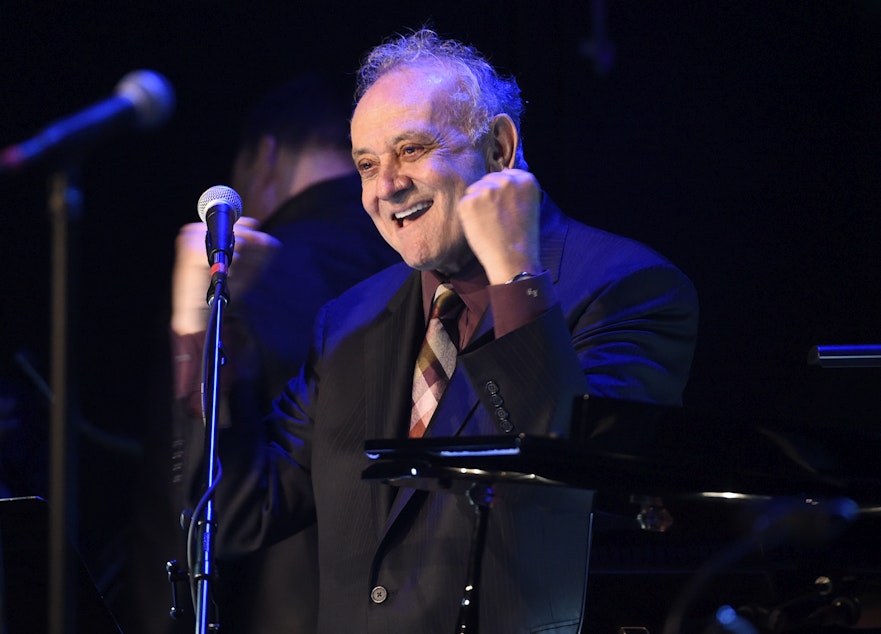Hear it again: Remembering the maestro behind 'Twin Peaks' sound

Feb. 24 marks the day agent Dale Cooper first came to the town of Twin Peaks.
And while the town may be fictional, the towns of Snoqualmie and North Bend have embraced “The Real Twin Peaks Days."
We're celebrating by returning to one of our favorite stories —remembering the maestro behind the music that made Twin Peaks so iconic.
With just three short notes, you’re there: the lumber yard, Snoqualmie Falls, and a pie-loving detective trying to solve the murder of a high school girl in the Cascade foothills.
The music takes you to "Twin Peaks."
The maestro behind the moody, surreal score that brought director and creator David Lynch's vision to life was Angelo Badalamenti.
The composer died on Dec. 11 at the age of 85.
Soundside's Libby Denkmann caught up with Vulture and New York Magazine staff writer Devon Ivie about the soundtrack behind the TV show that still draws fans back to the show's Snoqualmie, North Bend and Fall City locations.
Sponsored
"I would say [Badalamenti] was pretty much the master interpreter of David Lynch's vision and work," Ivie said. "He captured the entire mood of the show, which is something that is very hard to do in general."
From "Laura Palmer's Theme," to "Audrey's Dance," Badalamenti's scoring was always connected by heart and beauty.
"Twin Peaks" wasn't the only project Badalamenti collaborated on with Lynch. Throughout their creative partnership, they worked on eight productions together, including "Blue Velvet," "Wild at Heart" and "Mulholland Drive."
The pair had a unique and spontaneous collaboration style.
"Angelo pretty much improvised every single note that he composed for 'Laura Palmer's Theme,' just by David sitting next to him and talking into his ear," Ivie said. "David would go, 'I think we're in the woods, the mood is fine. But something sinister is going on, what's going on in the woods? Now there's this this beautiful teenage girl who's sad, she's in trouble, there's something in her eyes.'"
Sponsored
The whole time, Badalamenti was on the keys, improvising.
Great scoring can take storytelling to the next level, and it can also serve as an inspiration to other artists.
Soundside talked to Celene Ramadan, a Seattle-based musician and head of the band Prom Queen, about the influence Badalamenti has had on her own work.
Ramadan didn't watch "Twin Peaks" until she moved to the Pacific Northwest in her 20s.
"It's really embedded deeply into the fabric of the Pacific Northwest, and so I was like, 'I got to watch the show,'" Ramadan said. "Because I was making music and people were saying, 'This kind of sounds like something that would be in 'Twin Peaks.'"
Sponsored
Ramadan fell in love with the show and was blown away by Badalamenti's score.
"I think there's a lot of scores out there that kind of lay flat and they kind of end up being more like wallpaper," Ramadan said. "But the way that he pulls emotion out of a scene, the way he can make something that maybe wouldn't be as emotional extremely emotional, just through the tension and the build that he's doing in the track underneath it."
To Ramadan, and millions of fans that have immersed themselves in the world of "Twin Peaks," Badalamenti will always be a "master of moods."
Listen to the full interviews above





